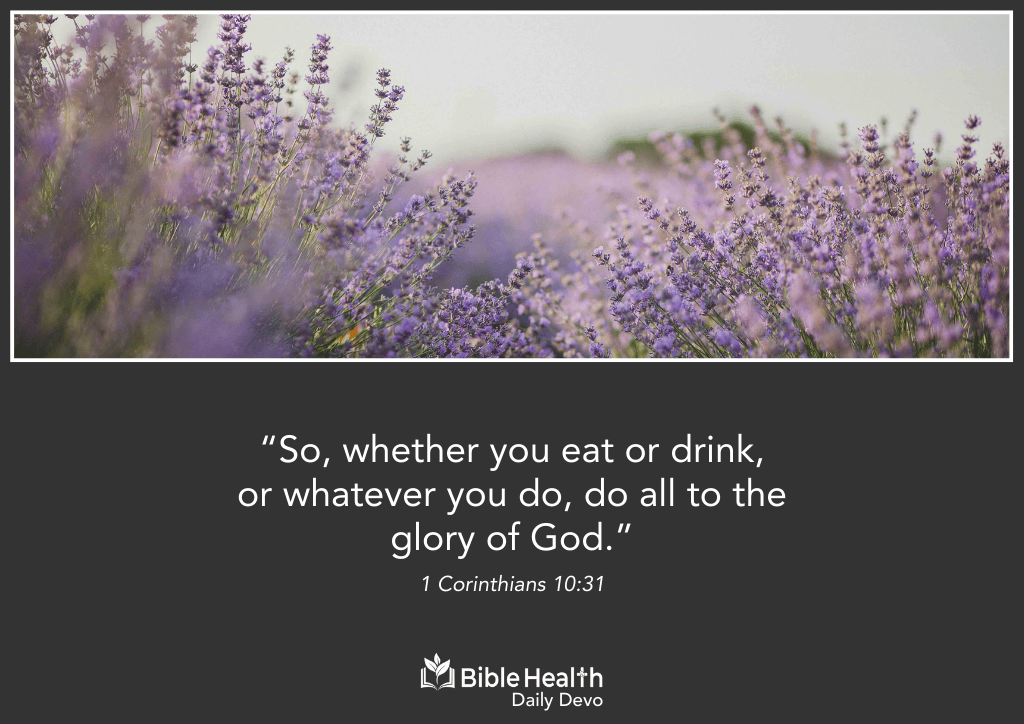~ 1 Corinthians 10:31
Subscribe to this podcast on iTunes | Spotify
Paul’s words here are sweeping. He has just finished addressing questions about food sacrificed to idols, but instead of leaving it there, he expands the principle: whatever you do—from eating to drinking to the smallest details of daily life—should glorify God.
This verse is transformative because it lifts even ordinary choices into the realm of worship. Our lives are not divided into sacred and secular. Every decision—how we speak, what we buy, how we care for our bodies, even how we clean our homes—becomes a reflection of whom we serve.
In today’s world, our daily environments are filled with chemicals: body care products, cleaning supplies, air fresheners, plastics, fragrances, forever chemicals, the list is endless. Many are convenient, common, and even culturally celebrated. Yet research continues to show that long-term exposure to toxins can disrupt hormones, affect mental health, trigger chronic inflammation—they are even linked to cancer, heart disease, Alzheimer’s and weakens future generations because of the damage done to our body’s today.
Are these things “sinful” in themselves? Not necessarily. But Paul’s principle helps us ask deeper questions: Are they helpful (1 Cor. 6:12)? Do they glorify God (1 Cor. 10:31)? Do they reflect stewardship of the temple of the Holy Spirit (1 Cor. 6:19)? Often, the honest answer is no.
So, choosing a lower-toxic lifestyle is not about legalism or fear—it’s about love. Love for God, who entrusted us with these bodies. Love for others, since what we bring into our homes also affects children, spouses, and guests. Love for creation, since many toxins harm the earth God gave us to steward. Living more mindfully is simply one way of living more worshipfully.
Glorifying God in daily choices doesn’t mean perfection or paranoia. It means intentionality. Maybe it looks like swapping harsh cleaners for gentler alternatives. Maybe it’s choosing fragrance-free or natural body care. Maybe it’s simplifying, buying less, and trusting God’s design over endless consumer marketing. Every small step is an act of worship—saying: “Lord, I want my life, even in these details, to point to You.”
In this way, low-toxic, non-toxic living becomes part of discipleship. Just as fasting trains us to hunger for God, lowering exposure to toxins trains us to live with wisdom, discipline, and freedom from cultural patterns. We are not bound to the world’s ways; we are free to choose what is life-giving.
So ask yourself today: Are my daily choices glorifying God, or are they careless? Am I being intentional with what I bring into my body and home, or am I simply going along with culture? Remember, Paul’s call is not just about what you avoid but about what you embrace: every choice for God’s glory is a seed of health, holiness, and testimony.
Prayer: Lord, help me to glorify You not only in prayer and worship but in the small, daily choices I make. Give me wisdom to care for my body and home in ways that honor You. May even the ordinary things—how I live, work, and rest—shine for Your glory. Amen.




